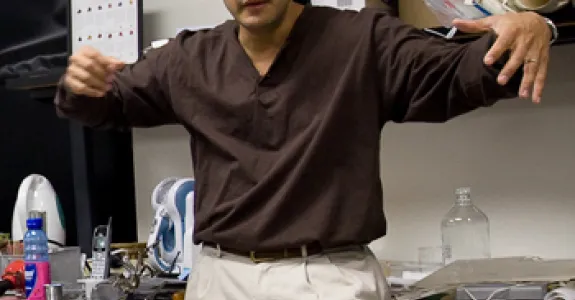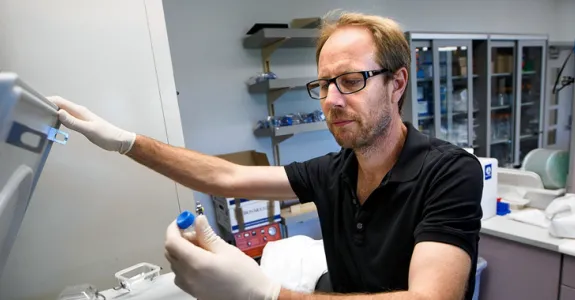
Dr. Butcher's laboratory is interested in fundamental aspects of cell-cell recognition, migration and development with the mammalian immune system as a model. They use molecular and genetic approaches to study the development and trafficking of white blood cells (e.g. lymphocytes, dendritic cells), including their interactions with the endothelial lining of blood vessels at sites of leukocyte extravasation, their chemotactic responses in tissues, and their programming by environmental factors in lymphoid tissues and within mucosal surfaces. A complementary interest is in the genetic and environmental control of endothelial cell specialization, which determines the sites, pace and specificity of leukocyte recruitment from the blood.
Although their focus is on fundamental problems in biology, the work is intrinsically translational and the laboratory is interested in applying its molecular and cellular discoveries to models of infection and immune pathology: examples include genetic studies of GPCR's and assessment of antibody- or cell-based therapeutics in models of inflammatory bowel disease, psoriasis, neurologic disorders (experimental allergic encephalomyelitis, epilepsy, Alzheimer's disease), cancer, aging and infection.



